Farouk Gulsara's Blog, page 101
December 6, 2019
Passed its sell-by date?
 Contestants: Vartika Singh (India), Mohana Prabha (Singapore),Mehr Elieser (Panama), Priya Serrao (Australia),
Contestants: Vartika Singh (India), Mohana Prabha (Singapore),Mehr Elieser (Panama), Priya Serrao (Australia), Shweta Sekhon (Malaysia).The female members of the clan were ecstatic to learn that they possibly shared the same forefathers of five of finalists who have been shortlisted at the 2019 Miss Universe contest. I did not want to be a spoilsport to dampen the spirit of achievement; they had no role at all. If anything, it only shows their hypocrisy.
On one end, they want to be assessed on their mental ability and tenacity. They feel slighted when referred to as the weaker sex or given leeway for under achievements. They would like to believe that their successes in life were purely via merit, not by merely being the fairer sex. They raise their gaze when the female gender is condescended upon or depicted in a negative light.
But it is quite puzzling that the parading of scantily clad females like livestock raises no concern at all to them. Sure, intellectual capacity, wit, personality and social consciousness all are tested to pick the fairest of them all. Physical attributes must surely give the window of opportunity for other subsequent successes to follow soon.
Have we not seen enough instances of how beauty queens being puppets of businesses and government acting under the guise of being a brand ambassador for a novel cause?
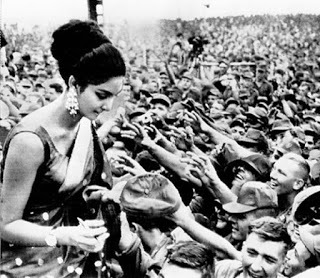 Ms Reita Faria, Ms World 1966.Offhand, the story of Asia's first Ms World contestant and the 1966 winner comes to mind. Reita Faria, then a 23-year-old medical student from Bombay, went on to win the crown. (Note: Ms World and Ms Universe are different events). Her problems started after that. As part of her contract, she had to appear for the organisers, Mecca. She had to accompany Bob Hope to entertain GIs in the Vietnam War. As India opposed the Vietnam War, her passport was impounded by her Government, and she was stuck in the UK for a year, unable to continue her medical studies. Her happy ending came about when she secured a place in King's College to continue her studies. She now resides in Ireland married to her mentor in 1971 and moved to Dublin.
Ms Reita Faria, Ms World 1966.Offhand, the story of Asia's first Ms World contestant and the 1966 winner comes to mind. Reita Faria, then a 23-year-old medical student from Bombay, went on to win the crown. (Note: Ms World and Ms Universe are different events). Her problems started after that. As part of her contract, she had to appear for the organisers, Mecca. She had to accompany Bob Hope to entertain GIs in the Vietnam War. As India opposed the Vietnam War, her passport was impounded by her Government, and she was stuck in the UK for a year, unable to continue her medical studies. Her happy ending came about when she secured a place in King's College to continue her studies. She now resides in Ireland married to her mentor in 1971 and moved to Dublin.Many years later, in an interview, Dr Reita Faria Powell opined that beauty pageants had probably passed their shelf life. She thinks that there is no more a fairy tale ending.

Have you noticed that over the years how the selection of finalists is overtly biased toward the turn of events in the world political arena? And more contestants from the developing countries seem to capture the limelight. Probably that is where the target audience is and where the sponsors want to tap their resources from. Maybe their counterparts in the first world are over with burning bras and have nothing more to prove. They are more than mere eye candies or trophy toys to demand recognition. Points to ponder.
This work is licensed under a Creative Commons Attribution 4.0 International License.
http://asok22.wix.com/real-lesson
http://.facebook.com/farouk.gulsara
www.riflerangeboy.com
This work is licensed under a Creative Commons Attribution 4.0 International License.

Published on December 06, 2019 08:01
December 3, 2019
Between creativity and mechanics?
Kattradhu Thamizh (கற்றது தமிழ், Learnt Tamil; 2007)
To remind ourselves, a line from Dead Poets Society...
The society tells you, especially if you are from the developing world, it needs to progress. Material improvement and physical development are viewed as a sure sign of prosperity. Science and technology are paths towards this end. Languages, literature, philosophy and art are frowned upon as a waste of time. It is characterised as the domain of the bourgeoisie; not in line with the advancement but instead of decadence.
In our small discussion group, we often discuss the current trend amongst the millennials who find the traditional science subject like medicine, engineering and core sciences unappealing but instead venture into finance, banking and management. With all due respect to these fields above, the world actually needs scientists who, in previous generations, propelled the world into the next stage of refrigeration, telecommunication, aviation, construction and breakthroughs in medicine and farming. It does not need managers who excel in re-packaging previously unsold products with re-branding or creative companies which monetise everything. The comfort that we have been having since the Industrial Revolution was sparked by science.
So, is learning languages and the arts still relevant at this age and time?
To take a cue from Amma, she would say, "Nice to listen to a song and appreciate the arts, but it does not put food on the table." That mentality probably echoed amongst most middle class Malaysian Indian families. The Tamil language was listened to but not spoken by their children. It was reserved only to talk to lowly coolies who cut your grass or cleaned your drains. This language used to be associated with crime, juvenile delinquency and decline. Hence, to emphasis on English and the fixation to converse with it. The richness, the past glory and the plethora of pearls of wisdom imbibed in the Tamil language are lost in the annals of time. This is inevitable. Economic dominance is king.
This film was listed as a must-watch Tamil movie in a post in Quora. One can probably lead a full life even without viewing this one, but nevertheless, the cinematography and the thought-provocation is worth the while.
Prabakar, a smart student with a Masters in Tamil studies, finds life in Chennai very tough. It was the 21st century and India was drawn into the internet boom. Americanism and computers were the drawing forces. Tamil is ridiculed. He finds out in a hard way that with Tamil, one can only earn a living by writing cheesy poems and penning flirty love letters for fornicators. This, together with his traumatic childhood, the jilting of the love of his life and the frequent brush with the authorities, turns him into a psychopathic killer.
Mediocre students doing computer studies and able to converse in English, he observed, fit nicely into the job market. Multinational companies pounce upon them for their telecommunication knowledge (read: call centres) and software engineering. Tamil language graduates were sneered and thought to have not reached the mark to qualify for anything 'worthwhile'.
But then, lest we forget that the initial earth-shattering success of Apple and I-phone was not merely to their technological innovation but in their ability to combine both creativity, marketing as well as software development. In other words, the sciences and the arts combined.
 This work is licensed under a Creative Commons Attribution 4.0 International License.
This work is licensed under a Creative Commons Attribution 4.0 International License.
http://asok22.wix.com/real-lesson
http://.facebook.com/farouk.gulsara
www.riflerangeboy.com
This work is licensed under a Creative Commons Attribution 4.0 International License.

To remind ourselves, a line from Dead Poets Society...
John Keating (played by Robin Williams): We don't read and write poetry because it's cute. We read and write poetry because we are members of the human race. And the human race is filled with passion. And medicine, law, business, engineering, these are noble pursuits and necessary to sustain life. But poetry, beauty, romance, love, these are what we stay alive for. To quote from Whitman, 'O me! O life!... of the questions of these recurring; of the endless trains of the faithless... of cities filled with the foolish; what good amid these, O me, O life?' Answer. That you are here - that life exists, and identity; that the powerful play goes on and you may contribute a verse. That the powerful play *goes on* and you may contribute a verse. What will your verse be?
The society tells you, especially if you are from the developing world, it needs to progress. Material improvement and physical development are viewed as a sure sign of prosperity. Science and technology are paths towards this end. Languages, literature, philosophy and art are frowned upon as a waste of time. It is characterised as the domain of the bourgeoisie; not in line with the advancement but instead of decadence.
In our small discussion group, we often discuss the current trend amongst the millennials who find the traditional science subject like medicine, engineering and core sciences unappealing but instead venture into finance, banking and management. With all due respect to these fields above, the world actually needs scientists who, in previous generations, propelled the world into the next stage of refrigeration, telecommunication, aviation, construction and breakthroughs in medicine and farming. It does not need managers who excel in re-packaging previously unsold products with re-branding or creative companies which monetise everything. The comfort that we have been having since the Industrial Revolution was sparked by science.
So, is learning languages and the arts still relevant at this age and time?
To take a cue from Amma, she would say, "Nice to listen to a song and appreciate the arts, but it does not put food on the table." That mentality probably echoed amongst most middle class Malaysian Indian families. The Tamil language was listened to but not spoken by their children. It was reserved only to talk to lowly coolies who cut your grass or cleaned your drains. This language used to be associated with crime, juvenile delinquency and decline. Hence, to emphasis on English and the fixation to converse with it. The richness, the past glory and the plethora of pearls of wisdom imbibed in the Tamil language are lost in the annals of time. This is inevitable. Economic dominance is king.
This film was listed as a must-watch Tamil movie in a post in Quora. One can probably lead a full life even without viewing this one, but nevertheless, the cinematography and the thought-provocation is worth the while.
Prabakar, a smart student with a Masters in Tamil studies, finds life in Chennai very tough. It was the 21st century and India was drawn into the internet boom. Americanism and computers were the drawing forces. Tamil is ridiculed. He finds out in a hard way that with Tamil, one can only earn a living by writing cheesy poems and penning flirty love letters for fornicators. This, together with his traumatic childhood, the jilting of the love of his life and the frequent brush with the authorities, turns him into a psychopathic killer.
Mediocre students doing computer studies and able to converse in English, he observed, fit nicely into the job market. Multinational companies pounce upon them for their telecommunication knowledge (read: call centres) and software engineering. Tamil language graduates were sneered and thought to have not reached the mark to qualify for anything 'worthwhile'.
But then, lest we forget that the initial earth-shattering success of Apple and I-phone was not merely to their technological innovation but in their ability to combine both creativity, marketing as well as software development. In other words, the sciences and the arts combined.
 This work is licensed under a Creative Commons Attribution 4.0 International License.
This work is licensed under a Creative Commons Attribution 4.0 International License.
http://asok22.wix.com/real-lesson
http://.facebook.com/farouk.gulsara
www.riflerangeboy.com
This work is licensed under a Creative Commons Attribution 4.0 International License.

Published on December 03, 2019 16:18
November 30, 2019
We are bound to repeat the sins of our fathers!
Greatest Events in WW2 (Netflix, 2019)
 We all know almost everything about WW2 and how humanity showed its ugly face in annihilating each other. What makes this offering unique is that, beyond the colourisation of old films, it gives a somewhat good account of why both sides acted the way both the feuding parties did what they did.
We all know almost everything about WW2 and how humanity showed its ugly face in annihilating each other. What makes this offering unique is that, beyond the colourisation of old films, it gives a somewhat good account of why both sides acted the way both the feuding parties did what they did.
It narrates the sequence of events of the Second World War in Europe, on the Western and Eastern Fronts as well as the Pacific Wars. It tries to shed light, or at least give a viewpoint to the many controversies of the day and the many questionable decisions made by the world powers of the day.
In wars, they say, nobody wins. There is no doubt, however, that the act of war promotes technological advances and stimulates the economy while it lasts. The aftermath of war also is an advantage to the victors as they dictate terms of conquest and take the lion's share of re-development of the losers territories.
In essence, WW2 is the continuation of the Great War. German felt that the Versailles Treaty had unfairly blamed it for starting the war. Reparation payments had literally bankrupted the nation. In the midst of all these emerges a leader, elected all through the legitimate ways, a democratically chosen head who proclaimed himself as the Fuhrer. People were happy as the economy was improving, industrialisation was going full steam and Germans were getting employment.
 Hitler managed to build a nationalistic spirit and managed to unite his people under the German flag. On the outside, Hitler seems like a nice chap who has cordial relationships with Russia and the British. But at the local level, he with Goebbels, his Propaganda Minister are hellbent in convincing the Germans that Jews are their enemies. The Jews had a steady hand in the Bolshevik Revolution and the creation of a fascist State. Hitler decries that the West is decadent.
Hitler managed to build a nationalistic spirit and managed to unite his people under the German flag. On the outside, Hitler seems like a nice chap who has cordial relationships with Russia and the British. But at the local level, he with Goebbels, his Propaganda Minister are hellbent in convincing the Germans that Jews are their enemies. The Jews had a steady hand in the Bolshevik Revolution and the creation of a fascist State. Hitler decries that the West is decadent.
The World, still reeling from a debilitating World War and the Depression of the late 1920s and early 30s did not think anyone would go into war. British PM Chamberlain had embarrassingly vouched for Germany that it had no expansionary intentions over its neighbours after it had annexed Sudetenland.
Sure enough, Hitler did not keep to his words. His Pervistin (an amphetamine) spiked Wehrmacht (army), and the spanking new and efficient Luftwaffe (airforce) literally steamrolled (blitzkrieg) through Austria, Czechoslavakia, Poland in the East and France as well as Belgium in the West. The Germans expanded North to conquer Norway and Sweden. In almost two weeks, the more significant part of Europe was under German control. The British were humiliated at Dunkirk when they had to scuttle away with civilian help when they were surrounded by the German Army. The Germans were controlling the whole of the Atlantic coast of Europe.
The first taste of German defeat came about when they sent their Luftwaffe to the thinly guarded Battle of Britain. The RAF managed to ward off the German's night raids in a heroic defence which gained points for Churchill as an excellent wartime Premier. The English were offered the olive branch but was blunted refused by Churchill.
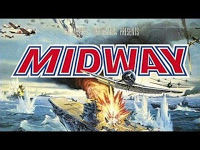 Over at the Pacific end, the Japanese military was being hijacked by the extreme right-wing faction of the society. They had spread a Samurai-like unwavering loyalty to the nation and portrayed a God-like status to the Emperor in the eye of his subjects.
Over at the Pacific end, the Japanese military was being hijacked by the extreme right-wing faction of the society. They had spread a Samurai-like unwavering loyalty to the nation and portrayed a God-like status to the Emperor in the eye of his subjects.
Industrialisation and the demand for coal and iron got the Japanese rampaging through Manchuria and Nanking. Germany made a pact with Japan and Tojo, an army commander became the PM of Japan. This further fuels its military agenda.
Pearl Harbour marked the entry of America into the war. The USA retaliated by flying deep into Japanese territory. The Battle of Midway showcased drama in real life as the US Army and the Japanese intercepted each others' messages and created elements of surprises to outwit each other. Even though many of the Japanese bombers failed to detonate at the most crucial moment, they were winning the Pacific War. By a twist of fate and element of luck, the US dive bombers caught up with the Japanese fleet and got the upper hand in the War.

In the earlier part of WW2, Russia and Germany had a non-aggression pact with each other and carved off Poland. The Nazis viewed the Slavs as inferior and the Jews as the conspirators of the Communists. Even though the Balkans and Central Asia (including Azerbaijan) were more exceptional spoils with their old-fields, Hitler decided to attack Stalingrad in Operation Barbarossa. History repeats itself. Attacking Russia in the height of winter was a big mistake as the Germans realised just like how Napoleon and his men discovered the hard way when the Russian natives abandoned their towns after torching them. This began the end of German dominance and the most significant turning point in the war. They were surrounded, trapped and starved to death. Like the Russian Matryoshka doll, the onion metaphor, the Russians came back with a vengeance.
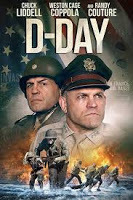
Rommel was given the task of guarding the Atlantic Wall. There were four likely sites that the Germans expected to be attacked. Pas-de-Calais was thought to be the locality of landing. Through multiple military deceptions, false misinformation and the use of encryption devices (Enigma being one of them), the Allied Forces managed to plan in the French beach of Normandy.
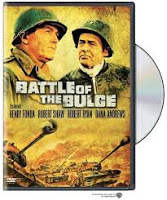 The Battle of Bulge or the Ardeness Counteroffensive was the last German offensive campaign on the Western Front. After their disastrous stints in Russia, the Allied Forces ( the British, Americans and the Canadians) must have thought that moving in must have been easy. The Germans counterattacked with much vigour in the lousy weather, rendering the Allied airstrikes impossible to execute. Just when everything seems gone wrong, the weather cleared, and the Germans were defeated as the Russians advanced on the Eastern Front.
The Battle of Bulge or the Ardeness Counteroffensive was the last German offensive campaign on the Western Front. After their disastrous stints in Russia, the Allied Forces ( the British, Americans and the Canadians) must have thought that moving in must have been easy. The Germans counterattacked with much vigour in the lousy weather, rendering the Allied airstrikes impossible to execute. Just when everything seems gone wrong, the weather cleared, and the Germans were defeated as the Russians advanced on the Eastern Front.
 As the heat of the war escalated, it came to light that it was not the Axis Forces the evil ones. The RAF, through the leadership of Arthur 'Bomber' Harris, practised area bombing. His 'Operation Thunderclap' which involved night bombing and utter devastation of the cultural town of Dresden. Dresden was of no military interest. The carpet bombing of this town literally created a firestorm and cooked its citizens. Gobbles strategically leaked out pictures of Dresden carnage to neutral press in Switzerland and Sweden to garner world sympathy as well as to tarnish the squeaky clean image of the Allied Forces. The voice of dissidence grew louder.
As the heat of the war escalated, it came to light that it was not the Axis Forces the evil ones. The RAF, through the leadership of Arthur 'Bomber' Harris, practised area bombing. His 'Operation Thunderclap' which involved night bombing and utter devastation of the cultural town of Dresden. Dresden was of no military interest. The carpet bombing of this town literally created a firestorm and cooked its citizens. Gobbles strategically leaked out pictures of Dresden carnage to neutral press in Switzerland and Sweden to garner world sympathy as well as to tarnish the squeaky clean image of the Allied Forces. The voice of dissidence grew louder.
It became clear through World War 2 that even civilised people fell into depravity when the situation is ripe. The liberation of inmates of concentration camps in places like Buchenwald showed how Man is coerced so easily into evil. Again and again, history has shown how we fall prey to the sweet talk and rhetorics of the leaders to sanction something, which in retrospect, is so inhumane.
The necessity of the need to drop nuclear bombs over Hiroshima and Nagasaki remains unanswered. The Japanese forces were already wearing thin. Their resources had already been depleted. The Empire was already a spent force. The Russians, after successfully completing their Eastern European front, were moving in from the North. Perhaps, the need to quash the Communist dominance over this area was urgent. Knowing the mortifying effects of the atomic bombs, the white men still proceeded with the mission. Perhaps the Asians were lesser human. Would they have done the same to their European brothers?
The lesson learnt at the end of the series is that Man's greatest enemy is Man himself. He is spineless, is easily manipulated and is hellbent on destruction. He will let past history pass him by and is cursed to repeat the sins of his fathers.
 "I am become Death, the destroyer of worlds."
"I am become Death, the destroyer of worlds."
 This work is licensed under a Creative Commons Attribution 4.0 International License.
This work is licensed under a Creative Commons Attribution 4.0 International License.
http://asok22.wix.com/real-lesson
http://.facebook.com/farouk.gulsara
www.riflerangeboy.com
This work is licensed under a Creative Commons Attribution 4.0 International License.

 We all know almost everything about WW2 and how humanity showed its ugly face in annihilating each other. What makes this offering unique is that, beyond the colourisation of old films, it gives a somewhat good account of why both sides acted the way both the feuding parties did what they did.
We all know almost everything about WW2 and how humanity showed its ugly face in annihilating each other. What makes this offering unique is that, beyond the colourisation of old films, it gives a somewhat good account of why both sides acted the way both the feuding parties did what they did. It narrates the sequence of events of the Second World War in Europe, on the Western and Eastern Fronts as well as the Pacific Wars. It tries to shed light, or at least give a viewpoint to the many controversies of the day and the many questionable decisions made by the world powers of the day.
In wars, they say, nobody wins. There is no doubt, however, that the act of war promotes technological advances and stimulates the economy while it lasts. The aftermath of war also is an advantage to the victors as they dictate terms of conquest and take the lion's share of re-development of the losers territories.
In essence, WW2 is the continuation of the Great War. German felt that the Versailles Treaty had unfairly blamed it for starting the war. Reparation payments had literally bankrupted the nation. In the midst of all these emerges a leader, elected all through the legitimate ways, a democratically chosen head who proclaimed himself as the Fuhrer. People were happy as the economy was improving, industrialisation was going full steam and Germans were getting employment.
 Hitler managed to build a nationalistic spirit and managed to unite his people under the German flag. On the outside, Hitler seems like a nice chap who has cordial relationships with Russia and the British. But at the local level, he with Goebbels, his Propaganda Minister are hellbent in convincing the Germans that Jews are their enemies. The Jews had a steady hand in the Bolshevik Revolution and the creation of a fascist State. Hitler decries that the West is decadent.
Hitler managed to build a nationalistic spirit and managed to unite his people under the German flag. On the outside, Hitler seems like a nice chap who has cordial relationships with Russia and the British. But at the local level, he with Goebbels, his Propaganda Minister are hellbent in convincing the Germans that Jews are their enemies. The Jews had a steady hand in the Bolshevik Revolution and the creation of a fascist State. Hitler decries that the West is decadent. The World, still reeling from a debilitating World War and the Depression of the late 1920s and early 30s did not think anyone would go into war. British PM Chamberlain had embarrassingly vouched for Germany that it had no expansionary intentions over its neighbours after it had annexed Sudetenland.
Sure enough, Hitler did not keep to his words. His Pervistin (an amphetamine) spiked Wehrmacht (army), and the spanking new and efficient Luftwaffe (airforce) literally steamrolled (blitzkrieg) through Austria, Czechoslavakia, Poland in the East and France as well as Belgium in the West. The Germans expanded North to conquer Norway and Sweden. In almost two weeks, the more significant part of Europe was under German control. The British were humiliated at Dunkirk when they had to scuttle away with civilian help when they were surrounded by the German Army. The Germans were controlling the whole of the Atlantic coast of Europe.
The first taste of German defeat came about when they sent their Luftwaffe to the thinly guarded Battle of Britain. The RAF managed to ward off the German's night raids in a heroic defence which gained points for Churchill as an excellent wartime Premier. The English were offered the olive branch but was blunted refused by Churchill.
 Over at the Pacific end, the Japanese military was being hijacked by the extreme right-wing faction of the society. They had spread a Samurai-like unwavering loyalty to the nation and portrayed a God-like status to the Emperor in the eye of his subjects.
Over at the Pacific end, the Japanese military was being hijacked by the extreme right-wing faction of the society. They had spread a Samurai-like unwavering loyalty to the nation and portrayed a God-like status to the Emperor in the eye of his subjects. Industrialisation and the demand for coal and iron got the Japanese rampaging through Manchuria and Nanking. Germany made a pact with Japan and Tojo, an army commander became the PM of Japan. This further fuels its military agenda.
Pearl Harbour marked the entry of America into the war. The USA retaliated by flying deep into Japanese territory. The Battle of Midway showcased drama in real life as the US Army and the Japanese intercepted each others' messages and created elements of surprises to outwit each other. Even though many of the Japanese bombers failed to detonate at the most crucial moment, they were winning the Pacific War. By a twist of fate and element of luck, the US dive bombers caught up with the Japanese fleet and got the upper hand in the War.

In the earlier part of WW2, Russia and Germany had a non-aggression pact with each other and carved off Poland. The Nazis viewed the Slavs as inferior and the Jews as the conspirators of the Communists. Even though the Balkans and Central Asia (including Azerbaijan) were more exceptional spoils with their old-fields, Hitler decided to attack Stalingrad in Operation Barbarossa. History repeats itself. Attacking Russia in the height of winter was a big mistake as the Germans realised just like how Napoleon and his men discovered the hard way when the Russian natives abandoned their towns after torching them. This began the end of German dominance and the most significant turning point in the war. They were surrounded, trapped and starved to death. Like the Russian Matryoshka doll, the onion metaphor, the Russians came back with a vengeance.

Rommel was given the task of guarding the Atlantic Wall. There were four likely sites that the Germans expected to be attacked. Pas-de-Calais was thought to be the locality of landing. Through multiple military deceptions, false misinformation and the use of encryption devices (Enigma being one of them), the Allied Forces managed to plan in the French beach of Normandy.
 The Battle of Bulge or the Ardeness Counteroffensive was the last German offensive campaign on the Western Front. After their disastrous stints in Russia, the Allied Forces ( the British, Americans and the Canadians) must have thought that moving in must have been easy. The Germans counterattacked with much vigour in the lousy weather, rendering the Allied airstrikes impossible to execute. Just when everything seems gone wrong, the weather cleared, and the Germans were defeated as the Russians advanced on the Eastern Front.
The Battle of Bulge or the Ardeness Counteroffensive was the last German offensive campaign on the Western Front. After their disastrous stints in Russia, the Allied Forces ( the British, Americans and the Canadians) must have thought that moving in must have been easy. The Germans counterattacked with much vigour in the lousy weather, rendering the Allied airstrikes impossible to execute. Just when everything seems gone wrong, the weather cleared, and the Germans were defeated as the Russians advanced on the Eastern Front. As the heat of the war escalated, it came to light that it was not the Axis Forces the evil ones. The RAF, through the leadership of Arthur 'Bomber' Harris, practised area bombing. His 'Operation Thunderclap' which involved night bombing and utter devastation of the cultural town of Dresden. Dresden was of no military interest. The carpet bombing of this town literally created a firestorm and cooked its citizens. Gobbles strategically leaked out pictures of Dresden carnage to neutral press in Switzerland and Sweden to garner world sympathy as well as to tarnish the squeaky clean image of the Allied Forces. The voice of dissidence grew louder.
As the heat of the war escalated, it came to light that it was not the Axis Forces the evil ones. The RAF, through the leadership of Arthur 'Bomber' Harris, practised area bombing. His 'Operation Thunderclap' which involved night bombing and utter devastation of the cultural town of Dresden. Dresden was of no military interest. The carpet bombing of this town literally created a firestorm and cooked its citizens. Gobbles strategically leaked out pictures of Dresden carnage to neutral press in Switzerland and Sweden to garner world sympathy as well as to tarnish the squeaky clean image of the Allied Forces. The voice of dissidence grew louder.It became clear through World War 2 that even civilised people fell into depravity when the situation is ripe. The liberation of inmates of concentration camps in places like Buchenwald showed how Man is coerced so easily into evil. Again and again, history has shown how we fall prey to the sweet talk and rhetorics of the leaders to sanction something, which in retrospect, is so inhumane.
The necessity of the need to drop nuclear bombs over Hiroshima and Nagasaki remains unanswered. The Japanese forces were already wearing thin. Their resources had already been depleted. The Empire was already a spent force. The Russians, after successfully completing their Eastern European front, were moving in from the North. Perhaps, the need to quash the Communist dominance over this area was urgent. Knowing the mortifying effects of the atomic bombs, the white men still proceeded with the mission. Perhaps the Asians were lesser human. Would they have done the same to their European brothers?
The lesson learnt at the end of the series is that Man's greatest enemy is Man himself. He is spineless, is easily manipulated and is hellbent on destruction. He will let past history pass him by and is cursed to repeat the sins of his fathers.
 "I am become Death, the destroyer of worlds."
"I am become Death, the destroyer of worlds."
 This work is licensed under a Creative Commons Attribution 4.0 International License.
This work is licensed under a Creative Commons Attribution 4.0 International License.
http://asok22.wix.com/real-lesson
http://.facebook.com/farouk.gulsara
www.riflerangeboy.com
This work is licensed under a Creative Commons Attribution 4.0 International License.

Published on November 30, 2019 08:30
November 27, 2019
A clash of historic proportions!
Kadaram Kondan (கடாரம் கொண்டான், Tamil, Conqueror of Kadaram; 2019))
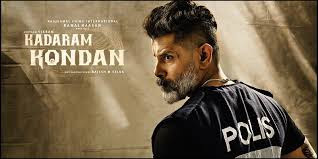
Young Malaysian adults of the 1980s must be quite familiar with the umpteen times concerts by foreign artistes that were initially launched with much pomp and splendour only to be cancelled later by the powers that be. The storyline would be the same. The youth wings of some political party would oppose to performer's lifestyle or decry that the performance would spiral down the society into a web of decadence. Just so as quickly as the excitement started, it would just fizzle out until another organiser risks a similar venture and burns his fingers. Our loss would be our neighbours' gain. The performers would quickly change their venue, and the deep-pocketed would have no qualms to catch their icons there.
The list includes Chicago in 1990s for their long hair, Megadeth in 2001 for the negative image of their mascot, Beyonce in 2007 for her short dress, Inul Darashista in 2008 for her trademark gyrating dangdut moves, Erykah Badu for her Allah tattoo in 2012, Kesha in 2013 for cultural sensitivities. Metallica, Elton John, Micheal Jackson, Mariah Carrey, Avril Lavigne, Pussy Cat Dolls and Black Eyed Peas, however, saw their shows come through by the skin of their teeth.
This film shot entirely in and around Kuala Lumpur in five months, met a similar fate as the former. It is puzzling that after getting all the permits and even shooting in the Police Headquarters, its release was stopped. Now the authorities cite incomplete permits, as FINAS the Malaysian body that governs local film industry. Furthermore, the storyline puts the Royal Malaysian Police in a terrible light. It portrays almost all policemen as corrupt who act in cahoots with the thugs and become running dogs to crime kingpins.
There is yet another theory which is put forward by conspiracy theorists. Kadaram is the ancient name of a Hindu kingdom which was based in the northern state of Kedah. Rajendra Chola 1, the son of Raja Raja Chola of Thirukovil fame, was conferred the 'Kadaram Kondaan' (the conquerer of Kadaram) when he wrestled the State over from the Srivijaya empire. Kadaram was representative of the Malayan peninsula. So, to say, somebody is the conqueror of Malaysia is close to blasphemy and does not augur well with the State determined narration of the nation's history. Hence the ban. Nusantara had Indian/Hindu beginning? Malayan peninsular under the thumb of Bharat? Unbelievable. The local self-aggrandising historians have their own account of Arabs and Malays having the same root origin.
 Jasmine Kaar, a Malaysian actor, played the role of a dirty cop.If not for the guessing game of the locations of the scenes that appear on the film, it would have been a dull affair. At the word get-go, the viewer can guess the flow of the story. A young couple, a doctor husband and his fully gravid wife, gets embroiled with a gangster and his rivals backed by almost the whole Royal Malaysian Police. Dr Vasu, a doctor in an intensive care unit, cares for a John Doe who was picked up around town. He witnessed some guy trying to kill the John Doe. Vasu's wife is kidnapped, and he has to get the patient out of the hospital discreetly if he wants to see his wife alive.
Jasmine Kaar, a Malaysian actor, played the role of a dirty cop.If not for the guessing game of the locations of the scenes that appear on the film, it would have been a dull affair. At the word get-go, the viewer can guess the flow of the story. A young couple, a doctor husband and his fully gravid wife, gets embroiled with a gangster and his rivals backed by almost the whole Royal Malaysian Police. Dr Vasu, a doctor in an intensive care unit, cares for a John Doe who was picked up around town. He witnessed some guy trying to kill the John Doe. Vasu's wife is kidnapped, and he has to get the patient out of the hospital discreetly if he wants to see his wife alive.
From then on, the movie goes on a cat-and-mouse spin all over the Klang Valley. There are too many hostage holding instances and death-defying near-miss accidents that makes the whole tale incredulous. It paints a picture of nearly every Malaysian cop to be corrupt and subservient to mafia leaders. It looks like the gang leaders pay their salary. The police have earlier crooks' phone number on their speed dial.
The story is based on a French movie titled 'À bout portant' made in 2010. It was remade in other languages too - Korean (The Target, 2014), Bollywood (unfinished, 2015), Hollywood (Point Blank, 2018), Bangla (Password, 2019).

This work is licensed under a Creative Commons Attribution 4.0 International License.
http://asok22.wix.com/real-lesson
http://.facebook.com/farouk.gulsara
www.riflerangeboy.com
This work is licensed under a Creative Commons Attribution 4.0 International License.


Young Malaysian adults of the 1980s must be quite familiar with the umpteen times concerts by foreign artistes that were initially launched with much pomp and splendour only to be cancelled later by the powers that be. The storyline would be the same. The youth wings of some political party would oppose to performer's lifestyle or decry that the performance would spiral down the society into a web of decadence. Just so as quickly as the excitement started, it would just fizzle out until another organiser risks a similar venture and burns his fingers. Our loss would be our neighbours' gain. The performers would quickly change their venue, and the deep-pocketed would have no qualms to catch their icons there.
The list includes Chicago in 1990s for their long hair, Megadeth in 2001 for the negative image of their mascot, Beyonce in 2007 for her short dress, Inul Darashista in 2008 for her trademark gyrating dangdut moves, Erykah Badu for her Allah tattoo in 2012, Kesha in 2013 for cultural sensitivities. Metallica, Elton John, Micheal Jackson, Mariah Carrey, Avril Lavigne, Pussy Cat Dolls and Black Eyed Peas, however, saw their shows come through by the skin of their teeth.
This film shot entirely in and around Kuala Lumpur in five months, met a similar fate as the former. It is puzzling that after getting all the permits and even shooting in the Police Headquarters, its release was stopped. Now the authorities cite incomplete permits, as FINAS the Malaysian body that governs local film industry. Furthermore, the storyline puts the Royal Malaysian Police in a terrible light. It portrays almost all policemen as corrupt who act in cahoots with the thugs and become running dogs to crime kingpins.
There is yet another theory which is put forward by conspiracy theorists. Kadaram is the ancient name of a Hindu kingdom which was based in the northern state of Kedah. Rajendra Chola 1, the son of Raja Raja Chola of Thirukovil fame, was conferred the 'Kadaram Kondaan' (the conquerer of Kadaram) when he wrestled the State over from the Srivijaya empire. Kadaram was representative of the Malayan peninsula. So, to say, somebody is the conqueror of Malaysia is close to blasphemy and does not augur well with the State determined narration of the nation's history. Hence the ban. Nusantara had Indian/Hindu beginning? Malayan peninsular under the thumb of Bharat? Unbelievable. The local self-aggrandising historians have their own account of Arabs and Malays having the same root origin.
 Jasmine Kaar, a Malaysian actor, played the role of a dirty cop.If not for the guessing game of the locations of the scenes that appear on the film, it would have been a dull affair. At the word get-go, the viewer can guess the flow of the story. A young couple, a doctor husband and his fully gravid wife, gets embroiled with a gangster and his rivals backed by almost the whole Royal Malaysian Police. Dr Vasu, a doctor in an intensive care unit, cares for a John Doe who was picked up around town. He witnessed some guy trying to kill the John Doe. Vasu's wife is kidnapped, and he has to get the patient out of the hospital discreetly if he wants to see his wife alive.
Jasmine Kaar, a Malaysian actor, played the role of a dirty cop.If not for the guessing game of the locations of the scenes that appear on the film, it would have been a dull affair. At the word get-go, the viewer can guess the flow of the story. A young couple, a doctor husband and his fully gravid wife, gets embroiled with a gangster and his rivals backed by almost the whole Royal Malaysian Police. Dr Vasu, a doctor in an intensive care unit, cares for a John Doe who was picked up around town. He witnessed some guy trying to kill the John Doe. Vasu's wife is kidnapped, and he has to get the patient out of the hospital discreetly if he wants to see his wife alive.From then on, the movie goes on a cat-and-mouse spin all over the Klang Valley. There are too many hostage holding instances and death-defying near-miss accidents that makes the whole tale incredulous. It paints a picture of nearly every Malaysian cop to be corrupt and subservient to mafia leaders. It looks like the gang leaders pay their salary. The police have earlier crooks' phone number on their speed dial.
The story is based on a French movie titled 'À bout portant' made in 2010. It was remade in other languages too - Korean (The Target, 2014), Bollywood (unfinished, 2015), Hollywood (Point Blank, 2018), Bangla (Password, 2019).

This work is licensed under a Creative Commons Attribution 4.0 International License.
http://asok22.wix.com/real-lesson
http://.facebook.com/farouk.gulsara
www.riflerangeboy.com
This work is licensed under a Creative Commons Attribution 4.0 International License.

Published on November 27, 2019 08:33
November 24, 2019
Must learn to laugh at ourselves.
Alex in Wonderland (Tamil-English, Tanglish, Prime; 2019)
 At the turn of the last century, the culture of standing on the stage, at the mic and making fun of people spread from Tinseltown to the East. The likes of Seinfield and Rodney Dangerfield must be the source of this culture. The idea of standing on a stage and rambling must have found a new place amongst yuppies after a perceived long days' work at the office.
At the turn of the last century, the culture of standing on the stage, at the mic and making fun of people spread from Tinseltown to the East. The likes of Seinfield and Rodney Dangerfield must be the source of this culture. The idea of standing on a stage and rambling must have found a new place amongst yuppies after a perceived long days' work at the office.
Standup comedy has found a special place amongst who by nature, especially those from the Indian subcontinent, are thought to have the gift of the gab and the dubious reputation of being able to sell ice to Eskimos.
Many stand-up acts have come from India. I particularly like the self-deprecating Praveen Kumar and the Oxford-trained MBA product Papa CJ who insulted the British in a show in London for colonising India!
Alexander Babu is another entertaining artiste from Tamil Nadu. His shows are not the typical comedies, but this engineer by training who gave up his engineer's safety helmet for a spot under the stage-lights is quite a musically inclined fellow.
In this presentation, Alex goes down Tamil cinema memory lane to re-live the good times of the 1960s through to the 1990s. This multi-talented chap played the bongo, drums, harmonium (the Indian keyboard) and flute to sing some songs of the yesteryears. His rendition of songs of various playback singers and different musical composers is delightful. He comically presented his message. Along the way, Alex also becomes philosophical and tries to impart the message that, despite the differences, we are all the same.
In this world where everybody tries to be politically correct and easily offended, Alex has no qualms singing religious tunes of different religions. He remembers being exposed to all these tunes, and he realises that just like music, songs can be sung in different tunes, the message of God can be found via different religions. Kudos.
 This work is licensed under a Creative Commons Attribution 4.0 International License.
This work is licensed under a Creative Commons Attribution 4.0 International License.
http://asok22.wix.com/real-lesson
http://.facebook.com/farouk.gulsara
www.riflerangeboy.com
This work is licensed under a Creative Commons Attribution 4.0 International License.

 At the turn of the last century, the culture of standing on the stage, at the mic and making fun of people spread from Tinseltown to the East. The likes of Seinfield and Rodney Dangerfield must be the source of this culture. The idea of standing on a stage and rambling must have found a new place amongst yuppies after a perceived long days' work at the office.
At the turn of the last century, the culture of standing on the stage, at the mic and making fun of people spread from Tinseltown to the East. The likes of Seinfield and Rodney Dangerfield must be the source of this culture. The idea of standing on a stage and rambling must have found a new place amongst yuppies after a perceived long days' work at the office.Standup comedy has found a special place amongst who by nature, especially those from the Indian subcontinent, are thought to have the gift of the gab and the dubious reputation of being able to sell ice to Eskimos.
Many stand-up acts have come from India. I particularly like the self-deprecating Praveen Kumar and the Oxford-trained MBA product Papa CJ who insulted the British in a show in London for colonising India!
Alexander Babu is another entertaining artiste from Tamil Nadu. His shows are not the typical comedies, but this engineer by training who gave up his engineer's safety helmet for a spot under the stage-lights is quite a musically inclined fellow.
In this presentation, Alex goes down Tamil cinema memory lane to re-live the good times of the 1960s through to the 1990s. This multi-talented chap played the bongo, drums, harmonium (the Indian keyboard) and flute to sing some songs of the yesteryears. His rendition of songs of various playback singers and different musical composers is delightful. He comically presented his message. Along the way, Alex also becomes philosophical and tries to impart the message that, despite the differences, we are all the same.
In this world where everybody tries to be politically correct and easily offended, Alex has no qualms singing religious tunes of different religions. He remembers being exposed to all these tunes, and he realises that just like music, songs can be sung in different tunes, the message of God can be found via different religions. Kudos.
 This work is licensed under a Creative Commons Attribution 4.0 International License.
This work is licensed under a Creative Commons Attribution 4.0 International License.
http://asok22.wix.com/real-lesson
http://.facebook.com/farouk.gulsara
www.riflerangeboy.com
This work is licensed under a Creative Commons Attribution 4.0 International License.

Published on November 24, 2019 08:01
November 20, 2019
Seeds of doubt and hope!
Unbelievable (Miniseries, Season 1. Netflix, 2019)
The epilogue in a Twilight Zone episode in its first season titled 'The Monsters are Due in Maple Street' goes like this...
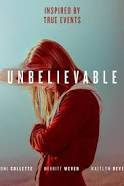 It tells of a Martian experiment where a junior alien officer explaining to his superior of a scheme to create chaos on Earth. He suggests planting the seed of doubt to weaken and win over Earthlings.
It tells of a Martian experiment where a junior alien officer explaining to his superior of a scheme to create chaos on Earth. He suggests planting the seed of doubt to weaken and win over Earthlings.
Planting a seed of doubt is a dangerous thing. This uncertainty breeds suspicion of conspiracy. Putting two and two unrelated events suddenly appear crystal clear of the threat from the other. Even though this is a potentially self-defeating defence mechanism, it is nevertheless a survival instinct that may help a herd.
I heard this real-life story through a podcast. It told the story of a teenager, Marie Adler, with a troubled childhood. She had been living with many foster homes previously and had recently started living on her own when, in 2008, she reported that someone had broken into her Seattle hostel home and raped her.
The rapist had allegedly entered her home, tied her up with her shoelace, blindfolded her, threatened her with a knife, raped her and meticulously left without a trace of evidence; DNA or fingerprints.
Police did their official investigation. Along the course of the inquiry, her former foster parent whom Marie is still close to raised suspicion that her behaviour was unbecoming of someone who had undergone a traumatic event. Slowly, everyone agreed that Marie had always been an attention seeker. They wondered whether she could have faked the whole thing. The police also started investigating along this line.
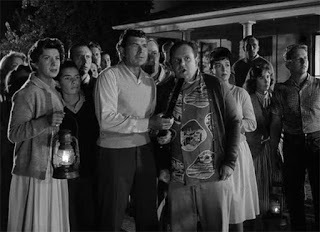 The Monsters are Due on Maple Street TZ S1E22
The Monsters are Due on Maple Street TZ S1E22
A perplexed Marie, who was still fizzled by the whole event, started doubting her own complaint. She pondered whether it was all just a dream. Sure enough, she later a declaration that she could have falsely reported the whole thing and was even fined for it. The entire event left her traumatised very profoundly.
Three years later, in another state, Colorado, the police were out on a manhunt for a possible serial rapist. By a twist of fate, the wrangling of formalities, inside information and her near-obsessive nature of two policewomen a link was made between Marie's cold case and that one.
Crimes were becoming more complicated to be solved, thanks to TV series like CSI and access to the public reading material of police procedural manuals. Secrecy among police departments, not wanting to share information, makes it easy for perpetrators to uproot their base to another locale and start their activity all over again incognito.

It is not only fairytales have happy endings. Occasionally it happens in real life, and a big fat chunk of damages paid by the State to the victim makes it even sweeter. Marie sued the City Police and got $150,000 in compensation. An intense drama. 4.5/5

This work is licensed under a Creative Commons Attribution 4.0 International License.
http://asok22.wix.com/real-lesson
http://.facebook.com/farouk.gulsara
www.riflerangeboy.com
This work is licensed under a Creative Commons Attribution 4.0 International License.

The epilogue in a Twilight Zone episode in its first season titled 'The Monsters are Due in Maple Street' goes like this...
The tools of conquest do not necessarily come with bombs and explosions and fallout. There are weapons that are simply thoughts, attitudes, prejudices – to be found only in the minds of men. For the record, prejudices can kill – and suspicion can destroy – and a thoughtless frightened search for a scapegoat has a fallout all of its own – for the children – and the children yet unborn. And the pity of it is – that these things cannot be confined – to the Twilight Zone.
 It tells of a Martian experiment where a junior alien officer explaining to his superior of a scheme to create chaos on Earth. He suggests planting the seed of doubt to weaken and win over Earthlings.
It tells of a Martian experiment where a junior alien officer explaining to his superior of a scheme to create chaos on Earth. He suggests planting the seed of doubt to weaken and win over Earthlings.Planting a seed of doubt is a dangerous thing. This uncertainty breeds suspicion of conspiracy. Putting two and two unrelated events suddenly appear crystal clear of the threat from the other. Even though this is a potentially self-defeating defence mechanism, it is nevertheless a survival instinct that may help a herd.
I heard this real-life story through a podcast. It told the story of a teenager, Marie Adler, with a troubled childhood. She had been living with many foster homes previously and had recently started living on her own when, in 2008, she reported that someone had broken into her Seattle hostel home and raped her.
The rapist had allegedly entered her home, tied her up with her shoelace, blindfolded her, threatened her with a knife, raped her and meticulously left without a trace of evidence; DNA or fingerprints.
Police did their official investigation. Along the course of the inquiry, her former foster parent whom Marie is still close to raised suspicion that her behaviour was unbecoming of someone who had undergone a traumatic event. Slowly, everyone agreed that Marie had always been an attention seeker. They wondered whether she could have faked the whole thing. The police also started investigating along this line.
 The Monsters are Due on Maple Street TZ S1E22
The Monsters are Due on Maple Street TZ S1E22A perplexed Marie, who was still fizzled by the whole event, started doubting her own complaint. She pondered whether it was all just a dream. Sure enough, she later a declaration that she could have falsely reported the whole thing and was even fined for it. The entire event left her traumatised very profoundly.
Three years later, in another state, Colorado, the police were out on a manhunt for a possible serial rapist. By a twist of fate, the wrangling of formalities, inside information and her near-obsessive nature of two policewomen a link was made between Marie's cold case and that one.
Crimes were becoming more complicated to be solved, thanks to TV series like CSI and access to the public reading material of police procedural manuals. Secrecy among police departments, not wanting to share information, makes it easy for perpetrators to uproot their base to another locale and start their activity all over again incognito.

It is not only fairytales have happy endings. Occasionally it happens in real life, and a big fat chunk of damages paid by the State to the victim makes it even sweeter. Marie sued the City Police and got $150,000 in compensation. An intense drama. 4.5/5

This work is licensed under a Creative Commons Attribution 4.0 International License.
http://asok22.wix.com/real-lesson
http://.facebook.com/farouk.gulsara
www.riflerangeboy.com
This work is licensed under a Creative Commons Attribution 4.0 International License.

Published on November 20, 2019 08:03
November 18, 2019
We flock together when the odds are against us.
Sometimes (Sila Samayanggil, Tamil, சில சமயங்கில்; 2018)
Netflix
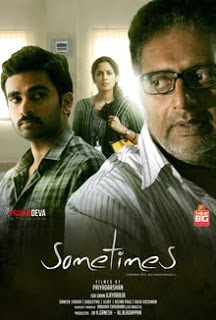 We consider ourselves one step better than a stranger standing beside us. We gaze at them through our rose-tinted glasses when they are unaware and draw our own conclusions on their moral standards and codify them either 'good' or 'bad'.
We consider ourselves one step better than a stranger standing beside us. We gaze at them through our rose-tinted glasses when they are unaware and draw our own conclusions on their moral standards and codify them either 'good' or 'bad'.
All these changes immediately the moment there is an imminent danger or a potentially life-consuming event in the near future. Imagine a group of passengers in a cruise who are stranded in a terrible storm, have lost all radio contacts and just waiting for time to sink if help does not arrive in time. In that scenario, everybody put their prejudices aside, treat each other as equal and try to face the common enemy.
This is the scenario that the filmmakers are trying to create. Seven patients are waiting anxiously in a sparsely populated lobby for their HIV results. Each patient has their own story that brought them to get their blood tested - an ex-girlfriend dying from AIDS, a single contact with a sex worker, a rape victim, someone who helped a road traffic accident victim who later died with HIV and so on. I guess the storyteller decided to stay from a gay or a promiscuous character as he would probably be the focus of the story or take the suspense part out of guessing who would turn HIV+ later. In the midst of all these is a counter clerk at the hospital who has serious money issues.
The seven patients could not stand the pressure of having to wait until the end of the day to get the results. They try to bribe the clerk to expedite the results, but all she could do was to tell that one of the seven of them got the bad news. The question is which one of them? That creates suspense that lasts throughout the later part of the film.
The whole movie takes place in a single set mostly, and in a single day. A slow-moving but intense drama with enough melodrama to satisfy the appetite of Tamil moviegoers. An AIDS awareness movie.

This work is licensed under a Creative Commons Attribution 4.0 International License.
http://asok22.wix.com/real-lesson
http://.facebook.com/farouk.gulsara
www.riflerangeboy.com
This work is licensed under a Creative Commons Attribution 4.0 International License.

Netflix
 We consider ourselves one step better than a stranger standing beside us. We gaze at them through our rose-tinted glasses when they are unaware and draw our own conclusions on their moral standards and codify them either 'good' or 'bad'.
We consider ourselves one step better than a stranger standing beside us. We gaze at them through our rose-tinted glasses when they are unaware and draw our own conclusions on their moral standards and codify them either 'good' or 'bad'.All these changes immediately the moment there is an imminent danger or a potentially life-consuming event in the near future. Imagine a group of passengers in a cruise who are stranded in a terrible storm, have lost all radio contacts and just waiting for time to sink if help does not arrive in time. In that scenario, everybody put their prejudices aside, treat each other as equal and try to face the common enemy.
This is the scenario that the filmmakers are trying to create. Seven patients are waiting anxiously in a sparsely populated lobby for their HIV results. Each patient has their own story that brought them to get their blood tested - an ex-girlfriend dying from AIDS, a single contact with a sex worker, a rape victim, someone who helped a road traffic accident victim who later died with HIV and so on. I guess the storyteller decided to stay from a gay or a promiscuous character as he would probably be the focus of the story or take the suspense part out of guessing who would turn HIV+ later. In the midst of all these is a counter clerk at the hospital who has serious money issues.
The seven patients could not stand the pressure of having to wait until the end of the day to get the results. They try to bribe the clerk to expedite the results, but all she could do was to tell that one of the seven of them got the bad news. The question is which one of them? That creates suspense that lasts throughout the later part of the film.
The whole movie takes place in a single set mostly, and in a single day. A slow-moving but intense drama with enough melodrama to satisfy the appetite of Tamil moviegoers. An AIDS awareness movie.

This work is licensed under a Creative Commons Attribution 4.0 International License.
http://asok22.wix.com/real-lesson
http://.facebook.com/farouk.gulsara
www.riflerangeboy.com
This work is licensed under a Creative Commons Attribution 4.0 International License.

Published on November 18, 2019 08:01
November 15, 2019
Love, an often abused word
Nadigaiyar Thilakam (2018)
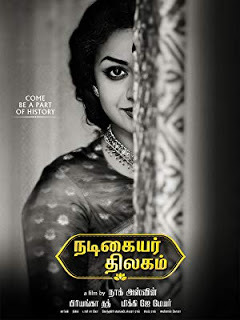 People do a lot of things under the guise of love. They justify wrongdoings and rationalise breaking of sacred bonds with the same excuse. They sanitise guilt by saying that love conquers all. They give love such a status as if it is the one that maintains human civilisation and makes the world go around. In short, love moves mountains. Love is Grace. Love is God.
People do a lot of things under the guise of love. They justify wrongdoings and rationalise breaking of sacred bonds with the same excuse. They sanitise guilt by saying that love conquers all. They give love such a status as if it is the one that maintains human civilisation and makes the world go around. In short, love moves mountains. Love is Grace. Love is God.
Perhaps love has been over-glorified. If we were to dissect love into subsets, maybe then the true intentions may manifest. A rose in any language may smell the same, but its thorns hurt, nevertheless. To be fascinated, to admire, to have passion, to desire, to have devotion, to like, to lust, to obsess, all denote different degrees of love. The end results in the pursuit of these ambitions may not always be a happy ending.
This film is a biopic drama of the darling of the early 1960s' Tamil silver screen, Mrs Savithri Ganesan. Savithri landed in Kollywood in the 1950s as a starry-eyed youngster. Even though failing to secure an acting role initially, she made her acquaintance with Gemini Ganesan. By a twist of fate, she finally was given a role in Kollywood and developed a relationship with an already married Gemini.
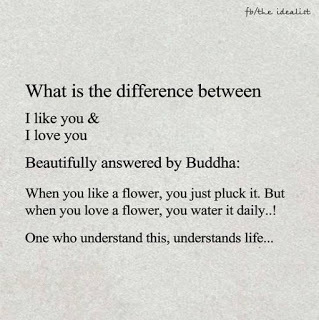 The story tells about their union, how they legitimise their wedding using love as a reason. Surprisingly this power of love only lasted as far as the going was good. When Savithri's career outshone Gemini's, he became defensive. The romance fizzled out and, hatred took over. Booze took charge to numb the pain. Love took the form of another woman. Somehow, it all made sense when Savithri was the other woman but not when she was two-timed.
The story tells about their union, how they legitimise their wedding using love as a reason. Surprisingly this power of love only lasted as far as the going was good. When Savithri's career outshone Gemini's, he became defensive. The romance fizzled out and, hatred took over. Booze took charge to numb the pain. Love took the form of another woman. Somehow, it all made sense when Savithri was the other woman but not when she was two-timed.
Bad business decisions and naivety landed Savithri in a collision course with the Income Tax. Embroiled in debts, alcoholism and bad health, she never regained her rightful place as the doyen of the Tamil cinema but died a pauper.

This work is licensed under a Creative Commons Attribution 4.0 International License.
http://asok22.wix.com/real-lesson
http://.facebook.com/farouk.gulsara
www.riflerangeboy.com
This work is licensed under a Creative Commons Attribution 4.0 International License.

 People do a lot of things under the guise of love. They justify wrongdoings and rationalise breaking of sacred bonds with the same excuse. They sanitise guilt by saying that love conquers all. They give love such a status as if it is the one that maintains human civilisation and makes the world go around. In short, love moves mountains. Love is Grace. Love is God.
People do a lot of things under the guise of love. They justify wrongdoings and rationalise breaking of sacred bonds with the same excuse. They sanitise guilt by saying that love conquers all. They give love such a status as if it is the one that maintains human civilisation and makes the world go around. In short, love moves mountains. Love is Grace. Love is God.Perhaps love has been over-glorified. If we were to dissect love into subsets, maybe then the true intentions may manifest. A rose in any language may smell the same, but its thorns hurt, nevertheless. To be fascinated, to admire, to have passion, to desire, to have devotion, to like, to lust, to obsess, all denote different degrees of love. The end results in the pursuit of these ambitions may not always be a happy ending.
This film is a biopic drama of the darling of the early 1960s' Tamil silver screen, Mrs Savithri Ganesan. Savithri landed in Kollywood in the 1950s as a starry-eyed youngster. Even though failing to secure an acting role initially, she made her acquaintance with Gemini Ganesan. By a twist of fate, she finally was given a role in Kollywood and developed a relationship with an already married Gemini.
 The story tells about their union, how they legitimise their wedding using love as a reason. Surprisingly this power of love only lasted as far as the going was good. When Savithri's career outshone Gemini's, he became defensive. The romance fizzled out and, hatred took over. Booze took charge to numb the pain. Love took the form of another woman. Somehow, it all made sense when Savithri was the other woman but not when she was two-timed.
The story tells about their union, how they legitimise their wedding using love as a reason. Surprisingly this power of love only lasted as far as the going was good. When Savithri's career outshone Gemini's, he became defensive. The romance fizzled out and, hatred took over. Booze took charge to numb the pain. Love took the form of another woman. Somehow, it all made sense when Savithri was the other woman but not when she was two-timed.Bad business decisions and naivety landed Savithri in a collision course with the Income Tax. Embroiled in debts, alcoholism and bad health, she never regained her rightful place as the doyen of the Tamil cinema but died a pauper.

This work is licensed under a Creative Commons Attribution 4.0 International License.
http://asok22.wix.com/real-lesson
http://.facebook.com/farouk.gulsara
www.riflerangeboy.com
This work is licensed under a Creative Commons Attribution 4.0 International License.

Published on November 15, 2019 15:45
November 13, 2019
Sex sells
The Erotic Engine:
How Pornography Has Powered Mass Communication from Gutenberg to Google (2011)
Author: Patchen Barss

Pornography has always been frowned upon as the destroyer of civilised societies. It has been put in the same decadent basket of other vices of man including cheating and gambling.
On the contrary, the idea of voyeurism goes back as far as our cavemen ancestors. They had been so fascinated with human anatomy, like excited schoolboys and toilet graffiti, that they decided to draw what they saw during the day on the wall of their dwellings. The early human civilisations were quite liberal with sexuality and nudity. Ancient sculptures of couples in various stages of undress and in acts of copulation are general knowledge. The Indian book of Kamasutra is the living proof of this. Even as late as the European Renaissance, the human body was immortalised in paintings.
Science and technology propelled the human race forward to meet various challenges. It helps Man to explore newer frontiers. Before the industrial revolution and the introduction of Gutenberg’s printing press, books and illustrations were handwritten and drawn. It was expensive, and it catered for the rich, who was also coincidentally literate. The general populace could not read; hence, it did not matter what was written. The Books at that time were filled with erotica, but the learned were thought to be able to handle it.
 © Roy Singh
© Roy Singh
The democratisation of printing opened this bag of worms to all. The middle class, who had their own moral standards, were ill-prepared to handle these. The Church which was the de-facto moral guardian of the masses intervened. The naked body became immoral, and its depiction against the law. Nevertheless, the interest never wanes but goes on underground. It created a new branch of a discipline called pornography to the masses but fine art to the high heeled.
The next wave of information dissemination came in the form of photography (pictures) and moving pictures (movies). Again the human body became the fascination of the makers and consumers alike. Peep shows, watching fuzzy pornographic plates became a cheap thrill. When a succession of photographs became cine, for the first time, people had the option of starring at a human body without raising the eyebrow of the other.
It was a godsend. To hide out in a dark theatre in anonymity watching ‘dirty picture’ in near lifelike visuals and audio.
Erotica continued tickling minds. The demand for it continued. It propelled advances in cinematographic techniques and optics to meet requests. Slowly explicit pictures made it to the mainstream. In the 80s, it became a norm for a Hollywood flick to have the mandatory flashing of breasts to hit it big in the box office.
 Betamax - a relic of the past ©YahooThe video was the next thing to hit the market. Porn consumers were particularly enthralled. In the comfort of their homes with the company of a stag (or maybe mixed) party, in anonymity, they could watch all the smut they want to their heart’s content. The video was the in-thing in the 80s, creating trade wars and advances in the storage of visual data.
Betamax - a relic of the past ©YahooThe video was the next thing to hit the market. Porn consumers were particularly enthralled. In the comfort of their homes with the company of a stag (or maybe mixed) party, in anonymity, they could watch all the smut they want to their heart’s content. The video was the in-thing in the 80s, creating trade wars and advances in the storage of visual data.
Computer games gave a shot in the arm towards this end. With interactive capabilities, the end user-provider barrier slowly starts to become interactive. Again and again, porn financed improvements in technology. VHS and Betamax graduated to LaserDisc and to DVD for that elusive high definition. UHF transmissions and cable TV were riding on pornography for profitability.
With time, silicon chips became a mode of the information revolution. Computer games gave users the freedom of creating their own avatars. It metamorphosed to their choice of a partner not only in the war games but something more intimate, like cybersex. From dirty talks using keyboards, it moved to joysticks and now the tip of the finger.
Next giant step in broadcasting must surely be the internet. Again, in its infancy, porn-related stuff was its best seller. It had an essential role in pushing the process of going on-line a breeze. For a seamless, uninterrupted flow of erotica, good bandwidth was needed. Poof, came protocol to this end.
What is the meaning of all these if money cannot be collected properly? The model of consuming first and pay later is notoriously unreliable in the porn industry. As it is a shady business, its patrons, naturally act dishonestly. Hence, there needs to be a safe encrypted secure way of collecting money before consumption. This sole intention must have improved our current way of internet shopping and credit card transactions. The need for anonymity helped online privacy and data protection.
 Comfortably Numbed - VR © Slate.
Comfortably Numbed - VR © Slate.
To keep up with piracy of dirty pictures, the porn industry developed its own way of tracing the source of copying and protection of its 'intellectual property'. This was later found useful in tracking down paedophiles and serial rapists.
It appears like there is no limit in satisfying the demand for porn. Its consumers demand more even when newer avenues are made available. It seems that sensations acquired through virtual reality are insufficient. In the near future, the industry hopes to venture into the field of haptic stimulations. This technology tries to transfer temperature, texture, motion and pressure stimuli to its end-users to satisfy their ever-expanding sexual gratifications.
A deep link exists between pornography, the tools and techniques of human communication. Sexual depiction is a powerful source of creativity and a driving force in innovation. Many modern search engines, online retailers, video/photo sharing sites and media moguls owe their success to pornographic websites.

This work is licensed under a Creative Commons Attribution 4.0 International License.
http://asok22.wix.com/real-lesson
http://.facebook.com/farouk.gulsara
www.riflerangeboy.com
This work is licensed under a Creative Commons Attribution 4.0 International License.

Author: Patchen Barss

Pornography has always been frowned upon as the destroyer of civilised societies. It has been put in the same decadent basket of other vices of man including cheating and gambling.
On the contrary, the idea of voyeurism goes back as far as our cavemen ancestors. They had been so fascinated with human anatomy, like excited schoolboys and toilet graffiti, that they decided to draw what they saw during the day on the wall of their dwellings. The early human civilisations were quite liberal with sexuality and nudity. Ancient sculptures of couples in various stages of undress and in acts of copulation are general knowledge. The Indian book of Kamasutra is the living proof of this. Even as late as the European Renaissance, the human body was immortalised in paintings.
Science and technology propelled the human race forward to meet various challenges. It helps Man to explore newer frontiers. Before the industrial revolution and the introduction of Gutenberg’s printing press, books and illustrations were handwritten and drawn. It was expensive, and it catered for the rich, who was also coincidentally literate. The general populace could not read; hence, it did not matter what was written. The Books at that time were filled with erotica, but the learned were thought to be able to handle it.
 © Roy Singh
© Roy SinghThe democratisation of printing opened this bag of worms to all. The middle class, who had their own moral standards, were ill-prepared to handle these. The Church which was the de-facto moral guardian of the masses intervened. The naked body became immoral, and its depiction against the law. Nevertheless, the interest never wanes but goes on underground. It created a new branch of a discipline called pornography to the masses but fine art to the high heeled.
The next wave of information dissemination came in the form of photography (pictures) and moving pictures (movies). Again the human body became the fascination of the makers and consumers alike. Peep shows, watching fuzzy pornographic plates became a cheap thrill. When a succession of photographs became cine, for the first time, people had the option of starring at a human body without raising the eyebrow of the other.
It was a godsend. To hide out in a dark theatre in anonymity watching ‘dirty picture’ in near lifelike visuals and audio.
Erotica continued tickling minds. The demand for it continued. It propelled advances in cinematographic techniques and optics to meet requests. Slowly explicit pictures made it to the mainstream. In the 80s, it became a norm for a Hollywood flick to have the mandatory flashing of breasts to hit it big in the box office.
 Betamax - a relic of the past ©YahooThe video was the next thing to hit the market. Porn consumers were particularly enthralled. In the comfort of their homes with the company of a stag (or maybe mixed) party, in anonymity, they could watch all the smut they want to their heart’s content. The video was the in-thing in the 80s, creating trade wars and advances in the storage of visual data.
Betamax - a relic of the past ©YahooThe video was the next thing to hit the market. Porn consumers were particularly enthralled. In the comfort of their homes with the company of a stag (or maybe mixed) party, in anonymity, they could watch all the smut they want to their heart’s content. The video was the in-thing in the 80s, creating trade wars and advances in the storage of visual data. Computer games gave a shot in the arm towards this end. With interactive capabilities, the end user-provider barrier slowly starts to become interactive. Again and again, porn financed improvements in technology. VHS and Betamax graduated to LaserDisc and to DVD for that elusive high definition. UHF transmissions and cable TV were riding on pornography for profitability.
With time, silicon chips became a mode of the information revolution. Computer games gave users the freedom of creating their own avatars. It metamorphosed to their choice of a partner not only in the war games but something more intimate, like cybersex. From dirty talks using keyboards, it moved to joysticks and now the tip of the finger.
Next giant step in broadcasting must surely be the internet. Again, in its infancy, porn-related stuff was its best seller. It had an essential role in pushing the process of going on-line a breeze. For a seamless, uninterrupted flow of erotica, good bandwidth was needed. Poof, came protocol to this end.
What is the meaning of all these if money cannot be collected properly? The model of consuming first and pay later is notoriously unreliable in the porn industry. As it is a shady business, its patrons, naturally act dishonestly. Hence, there needs to be a safe encrypted secure way of collecting money before consumption. This sole intention must have improved our current way of internet shopping and credit card transactions. The need for anonymity helped online privacy and data protection.
 Comfortably Numbed - VR © Slate.
Comfortably Numbed - VR © Slate.To keep up with piracy of dirty pictures, the porn industry developed its own way of tracing the source of copying and protection of its 'intellectual property'. This was later found useful in tracking down paedophiles and serial rapists.
It appears like there is no limit in satisfying the demand for porn. Its consumers demand more even when newer avenues are made available. It seems that sensations acquired through virtual reality are insufficient. In the near future, the industry hopes to venture into the field of haptic stimulations. This technology tries to transfer temperature, texture, motion and pressure stimuli to its end-users to satisfy their ever-expanding sexual gratifications.
A deep link exists between pornography, the tools and techniques of human communication. Sexual depiction is a powerful source of creativity and a driving force in innovation. Many modern search engines, online retailers, video/photo sharing sites and media moguls owe their success to pornographic websites.

This work is licensed under a Creative Commons Attribution 4.0 International License.
http://asok22.wix.com/real-lesson
http://.facebook.com/farouk.gulsara
www.riflerangeboy.com
This work is licensed under a Creative Commons Attribution 4.0 International License.

Published on November 13, 2019 08:08
November 11, 2019
All with the same trajectory, the atoms and the Universe
Super Deluxe (2019)
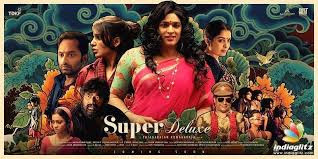 Story and Direction: Thiagarajan Kumaraja
Story and Direction: Thiagarajan Kumaraja
Gone are the days when Tamil movie stories were rather two-dimensional. It used to be that there was a bright, distinct demarcation between characters. Everything was black or white; they were either good people or bad. And poetic justice would prevail at the end of the film, proving once again that the dharmic principles of life would be upheld.
If you are one of those who is looking for a break from making daily-altering life questions to see gyrating bodies to soothing melodies nowadays, look elsewhere. I just happened to bump into this movie by chance as I was scrolling down the Netflix menu and saw one of my favourite actors, Ramya Krishnan in a leading role.
I got hooked from the first scene itself. A young wife calls her ex-boyfriend college mate over for some hokey-pokey for old times' sake as her husband out on errands. Soon after passionate lovemaking, the lady discovers her lover stiff hard, out cold and dead. Then starts the panic as her husband walks in with some unwelcomed guests.
This story is told in concurrent with another two (or maybe three) other tales which somehow gets intertwined as we will see later in the movie. In another scene, a young boy, a tween, is waiting patiently for his estranged father to return home after years of leaving home. A taxi stops in front of the house as the excited extended family members wait in anticipation. An overdressed lady walks out. Hold behold, the father is now a transgender person. Then come the discrimination, the ridicule and the humiliation of the 'father' and the family members.
In another related storyline, five teenage boys play truant to watch porn. After craftily getting a copy of an X-rated DVD, they watch the show in one of the boy's home. One of them gets a shock when the lead lady is actually his mother! In anger, he throws the beer bottle on the TV screen, shattering it. He runs home in rage to confront his mother, Leela (Ramya Krishnan). As he runs with a kitchen knife to harm his mother, the boy accidentally trips and stabs himself instead, critically. Hence, starts a commotion; getting emergency medical treatment, contacting the boy's father who has left home to be an evangelical pastor. The boy's father, a tsunami survivor, feels that he is chosen by God to help people as he was the only one in his circle who survived the catastrophe as he held on to a rock statue of Jesus.
 Vijay Sethupathi - excellent as transgender.
Vijay Sethupathi - excellent as transgender.Also opened the bag of worms why the role should be playedby a male and not a transgender actor. They assert that being
transgender is not mere wearing of a wig and applying make-up.The rest of the boys, on the other hand, desperate to replace the broken TV get into a comedy of errors to get the money towards this end. If this is not confusing enough, wait for alien visitation and corrupt police force to completely knock you bonkers. Just when you think it is getting all draggy and how all these things are going to be tied together, it then hits you. Only then it dawns upon you that every scene and story is detailed to precision to make this offering simply a masterpiece. It leaves a trail of philosophy and questions about human behaviours that yearn to be answered.
We are responsible for our actions, whether the scriptures tell us or not. The two-timing wife has to face the music when it is discovered. She is responsible for her activity as it has repercussions on people around her, like her parents, husband and in-laws. If her lover dies in her hands, she has to face the consequences.
Doing what seems to be the right things may not always be a pleasant thing to do. Like the transgender lady (Manikam @ Shilpa, played beautifully by Vijay Sethupathi)) realises, even though it is her right to express her inner desires, her action may affect the people around her. It is not always about oneself but of people around her.
Being naked in public is frown upon by modern society. It is all in context. Being half-naked is the norm at the beach but not at a philharmonic orchestra performance. It might have been alright to be undressed in prehistoric times or perhaps even in generations to come, but now we have laws to govern these.
Society likes to see what it wants to see. It creates a storm when an actress acts in a porn movie but fails to credit her in a positive role, as a Goddess role. It chides the pedlars of porn but not its consumers.
A person who has done not so virtuous things also cares for his family. He also wants to do the right thing. A seemingly righteous person will do a 'sinful' things if circumstances dictate.
Apparently, just as the pastor who was enlightened during the tsunami, so was the transgender character. She also held her life on to a rock. After the ordeal, she just disposed of the rock and did her thing. The pastor, however, saw the rock statue that he held was that of Jesus and was a sign from God to save mankind. To one, it was just a piece of rock. To another, it was a message from the Maker. Interesting.
We make rules by association. We put two and two together to come to conclusions about things around us. We see the sun in the morning, and we see the moon at night, and we draw a conclusion that one appears mutually exclusive of the other. We get confused when we see both of them together. This knowledge is used by the philandering wife and her husband to confuse the police when they dispose of the body.
 Ramya KrishnanThe Universe seems to have a prototype for all of its inventions. The electrons and the tiny charged particles which are seen at a microscopic level or the intergalactic celestial bodies which are spread over many million light-years away, they are governed by a single law.
Ramya KrishnanThe Universe seems to have a prototype for all of its inventions. The electrons and the tiny charged particles which are seen at a microscopic level or the intergalactic celestial bodies which are spread over many million light-years away, they are governed by a single law.Everything holds its purpose for its existence. Like a single cell on the elephant that makes an elephant an elephant, every individual on this planet has his purpose. He exerts his influence in one way or the other - in the present time or the future. Just like historical events affect the present. The question is whether your existence is merely to fulfil your primal needs or for the betterment of the human race on the whole.
The alien character encourages us to view the human race objectively and re-evaluate the human race and laugh at our follies.
It appears like every scene, every dialogue, and every character is crafted with a purpose. No clip is introduced for the sake of filling the gap. Each has a back story. There are plenty of hidden messages in the background - like a silhouette of a flying plane to denote the timeline of the story. The cinematography is avantgarde at best, following the path of master filmmakers like Ray, Kurosawa, De Sica and Hitchcock. In many scenes, much is left to the imagination. Sometimes, sounds and dialogue have more impact. A partly obscured view adds more drama to our visual experience.
A clear 4.8/5 that makes you want to view it again.

This work is licensed under a Creative Commons Attribution 4.0 International License.
http://asok22.wix.com/real-lesson
http://.facebook.com/farouk.gulsara
www.riflerangeboy.com
This work is licensed under a Creative Commons Attribution 4.0 International License.

Published on November 11, 2019 08:33



